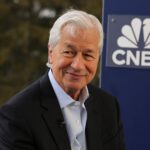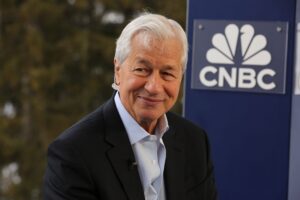
Walk into any bookstore and take a look at the books on retirement. Money and investments—usually, the lack of both—dominate. With good reason. The latest Schroders 2022 U.S. Retirement Survey reports that working Americans say it will take on average $1.1 million to retire comfortably. Yet only one-quarter of those surveyed expect to reach that savings mark. Among respondents nearing retirement–ages 60 to 67–more than half say they will have less than $250,000 saved at retirement.
Household finances matter at retirement, of course. But conversations with near-retirees and recent retirees–insights supported by a cottage industry of research—also highlight how it’s critical for people to find purpose in the next stage of life. The social and economic benefits from longer life expectancy (on average) is an opportunity for an aging population to create meaningful experiences and contributions later in life.
Read: How much — or little — is in the ‘average’ 401(k)?
“Retirement is now a longer and more important stage of life—and today’s retirees increasingly want to make the most of it,” note the team from the demographic consulting firm Age Wave and the financial services company Edward Jones in the recent survey report, Longevity and the New Journey of Retirement. “For the parents of today’s retirees and preretirees, the focus of retirement was mostly on ‘rest and relaxation.’ Now the majority of retirees and preretirees view retirement as ‘a new chapter in life.’”
The new narrative of retirement that is being written often includes work. Experienced workers in the traditional retirement years are experimenting with various ways to stay engaged in the economy, including self-employment, entrepreneurship, and part-time jobs. (The pandemic momentarily derailed the trend, but it has resumed with the current tight labor market.) The search isn’t for any kind of work, however. The goal is to find work—paid or unpaid–that offers purpose, a reason to get up in the morning.
What is purpose?
“Purpose is our aim to live a life that is meaningful and makes a positive contribution to the world. It is grounded in the truth that our lives are fundamentally worth living and that each of us matters,” write Richard Leider and David Shapiro in “Who Do You Want To Be When You Grow Old: The Path of Purposeful Aging.” “It helps us make sense of our lives and organize our choices and direction in life.”
I thought about the importance of purpose with age when I talked to Steven Newcom, age 68. When I first reached him, he was taking a break from building raised beds on the small farm near Brainard, Minnesota he and his wife Joy, age 63, bought in 2020. “We don’t want to keep bending over when we’re 80,” he laughs.
“Do you have a background in farming?” I ask.
“No background,” he replied. “My doctorate is in theology.”
Read: This type of retirement community can help people stay in their homes as long as possible
The shift from his earlier career (I’ll get to that in a moment) to farming was serendipitous, not haphazard. He and Joy had long wanted to make the move to be stewards of a plot of land. They had given up on buying a farm after years of looking and not finding anything that met their combination of price and small organic farming prospects. While visiting their son in Brainard, Minnesota in 2020 they saw a listing and decided to check it out. Why not? They visited the property, made an offer the next day, and moved into their new home as fast as they could. “In some ways it was an accident,” he says. “An opportunity we hadn’t expected.”
The farm is 25 acres with 10 acres of it pasture. They’re creating an organic farm, first for their own and family use, but they may eventually use it for commercial production. They planted 25 fruit trees in the spring, they’re remodeling a shed into a chicken coop, and they’re raising the beds. Steven and Joy are also planning a Silvopasture of hardwood and nut trees to provide shade for future livestock and to sequester carbon. Adding solar to cover their electrical use is also on the docket. “This is the life we want to live,” says Newcom.
What seized my attention during our conversations was while farming was far removed from his earlier work the underlying purpose remained the same: “The common thread through both of our careers has been a commitment to advancing justice,” he says. “Joy and I are continuing that with our stewardship of this land we are now responsible for.”
Joy, an Anishinaabe, has had a career in philanthropy, coaching and consulting with a focus on boosting native communities. Steve was the executive director for 18 years of the Headwaters Foundation for Social Justice, a community foundation that invests in grass roots organizations across. He left that position at age 54 in 2008 for a yearlong fellowship where he developed the idea that became in 2010 the Kaleo Center for Faith, Justice and Social Transformation in partnership with United Theological Seminary of the Twin Cities. He’s still involved with the Center while making the transition to the farm. He’s writing a “guidebook for spirit-grounded social transformation.”
Steve and Joy have long lived their purpose while expressing it in different ways during their careers. Many other people at similar ages may see the retirement years as a time for reflection to unearth their purpose. Either way, purpose is good for our mental and physical health, as well as a benefit to the broader society. “Having a positive or purposeful mind-set beyond yourself, you’ll have a quality of life that is better,” says Richard Leider, co-author of “Who Do You Want To Be When You Grow Old,” in an interview. “The question used to be ‘what do when you grow up?’ Now, it’s ‘what do you want to do when you grow old?”
Good question. (I’m still looking for an answer.) The larger lesson is that as the stereotypical vision of retirement as full-time leisure fast fades, expressing your purpose and values through work, volunteering, and other activities becomes increasingly vital.











